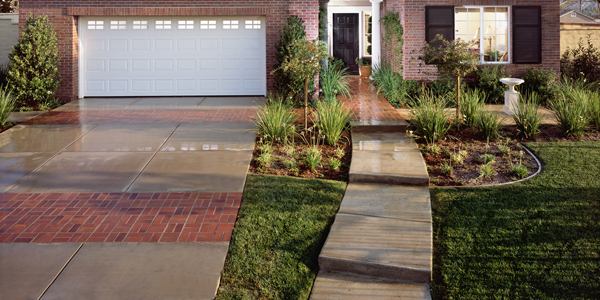
When you build new, or it’s time to replace your old driveway, many homeowners find themselves trying to decide between asphalt and concrete as driveway materials. Pavers, cobblestone, brick, and gravel are other choices, but the two most popular are asphalt and concrete. Both materials use stones and sand, but the difference is in the binder. Concrete uses portland cement to bind the aggregate, and asphalt or blacktop uses a petroleum product called asphalt cement. Both products need some maintenance and care to remain functional and attractive.
While asphalt is usually less expensive than concrete, the biggest differences are in their flexibility. This can make them each less suitable for certain sites. Concrete remains rigid, regardless of temperature, and asphalt retains some flexibility even after curing. Concrete is recommended for warm climates, but can still look good for decades in colder climates if properly rinsed of salt deposits, properly poured over a compressed gravel base, and given enough expansion joints. Because of it’s rigid nature, concrete is more prone to damage from frost heave, and needs a good base and enough expansion joints to allow it to adjust instead of crack. Asphalt is recommended for cooler climates, but can look great for decades in warmer states when sealed regularly. Because it stays flexible and gets softer in the heat, vehicles or heavy objects should not be parked on it for long periods in summer, or it will develop dents, .
A few additional things to consider are the level of maintenance, aesthetic choices, and value. While both materials need maintenance, asphalt needs the most regular attention and the cost of sealing every other year must be factored into the price difference. Cement can be sealed, but most homeowners don’t bother. It is vulnerable to salt deposits, especially from cars parked on the driveway, and you should take care to rinse away salt deposits whenever possible to eliminate spalling, or chipping of the concrete surface. Both concrete and asphalt can be stained and stamped with patterns, but there is a far wider possibility of color and style choices with concrete. It’s important to check with your city code and HOA before making a final decision, in case your choices are limited by the city or your neighborhood rules. Your driveway is worth some consideration. An attractive and well-maintained driveway of either material adds to the curb appeal of your home, and adds value.




